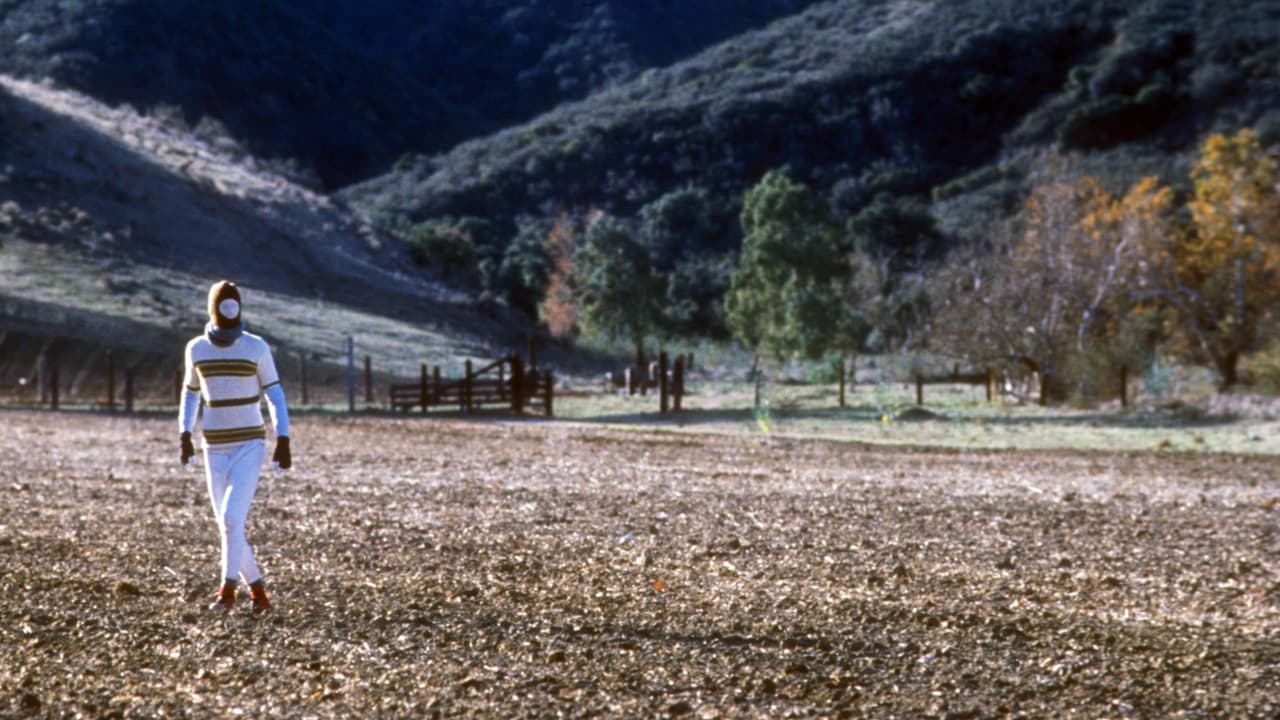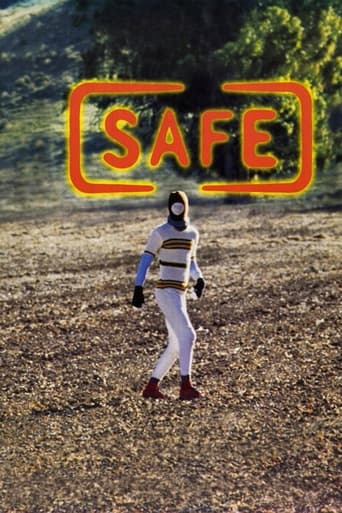TrueJoshNight
Truly Dreadful Film
Laikals
The greatest movie ever made..!
Lancoor
A very feeble attempt at affirmatie action
Marva
It is an exhilarating, distressing, funny and profound film, with one of the more memorable film scores in years,
SnoopyStyle
Carol White (Julianne Moore) is a wealthy housewife living an empty life in an affluent California suburb where the wrong colored couch being delivered is so very important. She's married to Greg (Xander Berkeley) with a stepson. She starts to suffer headaches. Her sickness gets more and more serious. People have differing opinions. The movie seems to indicate the everyday modern toxins. Her doctor (Steven Gilborn) sends her to a psychiatrist. An allergist finds that milk which she drinks constantly is a big trigger for her. She picks up a flyer from the community bulletin board and joins a group that blames it on modern chemicals. Peter Dunning (Peter Friedman) leads a chemical sensitive group living out in the middle of nowhere called Wrenwood.There is an overall haunting emptiness in the film. I do wonder what Todd Haynes is trying to say with this movie. It is Julianne Moore that keeps me intrigued. One thing that I didn't like is that Wrenwood has too many artificial things. It doesn't fit the concept. Also "Does that makes sense?" started to really annoyed me. I want the movie to do something but it somewhat peters out. It's more of a spiritual emptiness and a horror of the soul. I feel the same way about Wrenwood as the movie. Wrenwood is a bit cultish but it's not really hurting anyone. The movie is a bit odd but there's nothing obviously bad about it.
faidwnasgk
One of the most important figures of modern independent American cinema, Todd Haynes is widely known mostly for his music-based projects ( ''Velvet Goldmine'', ''I'm not there'', ''Superstar : the Karen Carpenter story'' and the videoclip for Sonic Youth's ''Disappearer'' ). But it's 1995's ''Safe'' that, although not related to music ( except for the amazing soundtrack ), stands out as his greatest work by far - and that is because it proves once more something that seems paradox at first glance : that the most ''anti-American'' culture that we've known so far, is the American culture itself.Carol White ( Julianne Moore in the greatest moment of her multifarious career ) is a bourgeois housewife that leads a peaceful and safe ( motif that obviously repeats itself several times throughout the film ) life with her husband and her adopted son in their luxurious house. Her daily routine is limited to aerobic classes, choosing the right color for the new sofa and having healthy meals with the rest of the good housewives - her friends. While the story unfolds she goes through some crises that look like epileptic and she starts believing more and more that its due to the effects of the environmental disaster, like the infected air she breathes in the city, or the chemical products she consumes on daily basis - and that's enough with the synopsis cause I already gave away a lot.Judging from all the above, someone would imagine that this is just a film with eco-friendly messages and indeed, this is the impression that the viewer gets around halfway through the film. Sure, the emotional emptiness of her family routine and her materialistic way of life has been made clear so far, but until then her emotional crisis doesn't seem to connect to the environmental crisis in any convincing way. The viewer is trying to connect the pieces, completely unsuspected about what's coming up next - and be sure that it's going to shake and flutter you like few other movies do.The ideology that dominates the world right now, not only in the US of course but globally, has too many aspects and the environmental crisis is only a small part of its effects in the social life - also in the film, it's going to be proved that the ecological extension is just an excuse. What really matters here is the basis upon which this ideology is build, meaning everything that feeds it and promotes on a daily basis ''from below'' : the path of individualism and family alienation from society create the need for safety from everything that threats to shake the peaceful life of the proud ''civilian'' - and that's exactly what Carol is. A low-profile, exemplary, law-abiding citizen that minds her own business and that once in a while ''breaks'' the routine by drinking tea with lemon at her friends' or trying a perm for a change. However, she's completely helpless fulfilling her need for emotional contact and, in what seems a huge step for her from what we've known so far, she decides to change her way of life drastically. Convinced that the root of all her problems is the exhaust gas of the big city, she cages herself in an even more limited environment, a strictly closed society that promises peace and serenity to her. ''We are safe, and all is well in our world'' teaches the new ''alternative'' mentor and he warns her that she is the sole responsible for everything that spoils her peace - and that is because ''she doesn't love herself too much''. Carol is willing to believe anything to find a cure, but her new cage is as deadlock as the previous one, only this time human contact is restricted by rules. The shockingly ironic last scene still haunts me every time I walk alone in the dark.
Wild Wander
One of the greatest film I've seen for the past few years about the acceptance of oneself. I'm not sure the question is to know whether she has aids. As edorapetrafiesa perfectly said in lower discussion, she became to be allergic to the whole world. And even more to herself. I guess she couldn't stand the person her entourage asked her to become. Her lack of self confidence from a long time coming from former failed relationship (this is not her child implying that regarding her age, it's not her first husband neither) + her desire to control the least detail of her life and you have a perfect cocktail of burn out and depression. No doubt anyway this movie is about Aids and the way the illness was perceived in the eighties. A perfect mirror movie to understand why and how sometimes we locked ourselves into social plays and the consequences for those who don't master the rules (personnally I haven't :)
I B
Made with the kind of analytic intelligence that was the signature of Stanley Kubrick, but also with a tenderness that Kubrick seldom permitted, Safe is an intellectual horror film. Carol (Julianne Moore) is afflicted with environmental illness. It is a syndrome which many in the medical establishment refuse to recognize; those who do consider its sufferers, most of them women, to be the canaries of the 21st century. Keeping Carol at a distance - a fragile, almost paralysed figure in a chill, repressive environment - director Todd Haynes nevertheless locates the film within her subjectivity. Rather than alienating us from her, the measured, wide-angle, hyper-real mise-en-scene becomes an expression of the alienation she experiences. As her health deteriorates, we realize that everything in her environment - which is not very different from our own - is potentially lethal. The tension between identification and remove gives the film great gravity. Every frame seems charged with the push-pull of desire and loathing. Safe has the most conventional surface of all Haynes's films, but it makes the greatest demand on viewers. It would be wrong to look for the film's meaning in the words of the affable guru of Wrenwood. Nothing could be further from Haynes's position than the New Age prescriptions. 'Do you smell the fumes?' is the inscription on a flyer that catches Carol's eye. Safe suggests that we are all vulnerable to the fumes; the rest is up to us.

